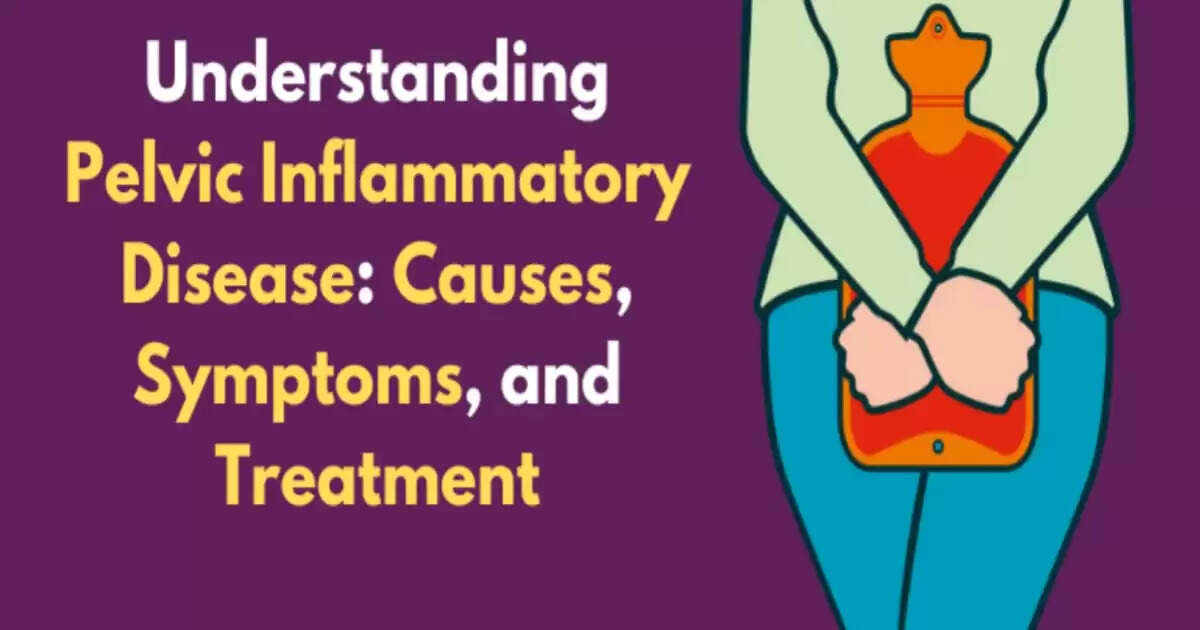How Pelvic Inflammatory Disease Can Lead to Infertility in Women

Infections of the female reproductive organs: One of the infections that most affects women's health is Pelvic Inflammatory Disease, also known as PID. PID affects the reproductive system's organs in the pelvic area. This infection can affect women of any age and greatly affects reproductive function.
According to the doctor, PID is a kind of syndrome, as it is a group of many health disorders that damage the ovaries, fallopian tubes (salpingitis), tubo-ovarian abscess, and pelvic peritonitis. This condition is more common in India than estimated.
According to some research, about 1 million women are affected by PID every year, making it a common gynecological problem.
What is pelvic inflammatory disease?
PID is a type of bacterial infection, that is, an infection caused by bacteria. It is important to pay attention to this infection as soon as possible, as it affects women's fertility. If left untreated for a long time, it can form scar tissue and pockets of infected fluid (abscesses) in the reproductive tract.
Causes and symptoms of PID:
PID is a type of bacterial infection caused by a specific bacteria. These bacteria are mainly transmitted through sexual relations, especially from a partner affected by sexually transmitted diseases such as chlamydia or gonorrhea. Sexually transmitted bacteria are responsible for about 85% of PID cases. However, in some cases, bacteria normally found in the vagina can also cause infection.
In the case of STI, bacteria enter the woman's vagina during sexual contact and spread to the reproductive organs. Symptoms may appear a few days or a week after exposure.
The symptoms and signs of PID are often very mild. In some cases, women with this infection may not notice any abnormality in their health, which may make it difficult to get the right treatment on time. If a woman does have symptoms, some of the common symptoms may be:
Pain in the lower abdomen and pelvis
Abnormal or excessive vaginal discharge
Unpleasant vaginal odor
Abnormal vaginal bleeding, especially during or after sex
Pain during sex
Chills with fever
Painful, frequent, or difficult urination
Fatigue
Effects of PID on reproductive health:
PID directly affects one or more reproductive organs, and if it is not treated on time, it can cause long-term fertility problems. Long-term bacterial infections can damage the reproductive organs, making it difficult for some women to get pregnant. The more often a woman gets infected with bacteria affected by PID, the greater the risk of loss of fertility. According to some research, 10% of women affected by PID cannot get pregnant because their fallopian tubes develop lesions, which prevent the release of eggs.
In such cases, IVF (in vitro fertilization) may be the only solution that can help the couple realize their dream of becoming parents. In the IVF process, the egg is fertilized in the lab and then the embryo is implanted in the uterus. IVF can increase the chances of success for women suffering from PID. For this, a person can seek professional help so that he or she can evaluate the available options and understand the chances of success.
Other problems and their prevention:
PID can cause not only infertility but also fallopian (atopic) pregnancy. In this condition, the fertilized egg gets stuck in the fallopian tube instead of the uterus. Such pregnancies can cause heavy and life-threatening bleeding and require emergency medical attention.
PID can be treated with antibiotics if detected early, but prevention is always better than cure. Practicing safe sex, getting periodic health checkups, and seeking medical help for any discomfort can reduce the risk.
The female reproductive system is extremely sensitive, and even a minor health problem can have a serious impact on it. Whether the problem affects the reproductive system or any other part of the body, it is important to resolve it quickly to maintain overall health and well-being. The symptoms of PID may be subtle, but if not addressed on time, the consequences can be severe.
